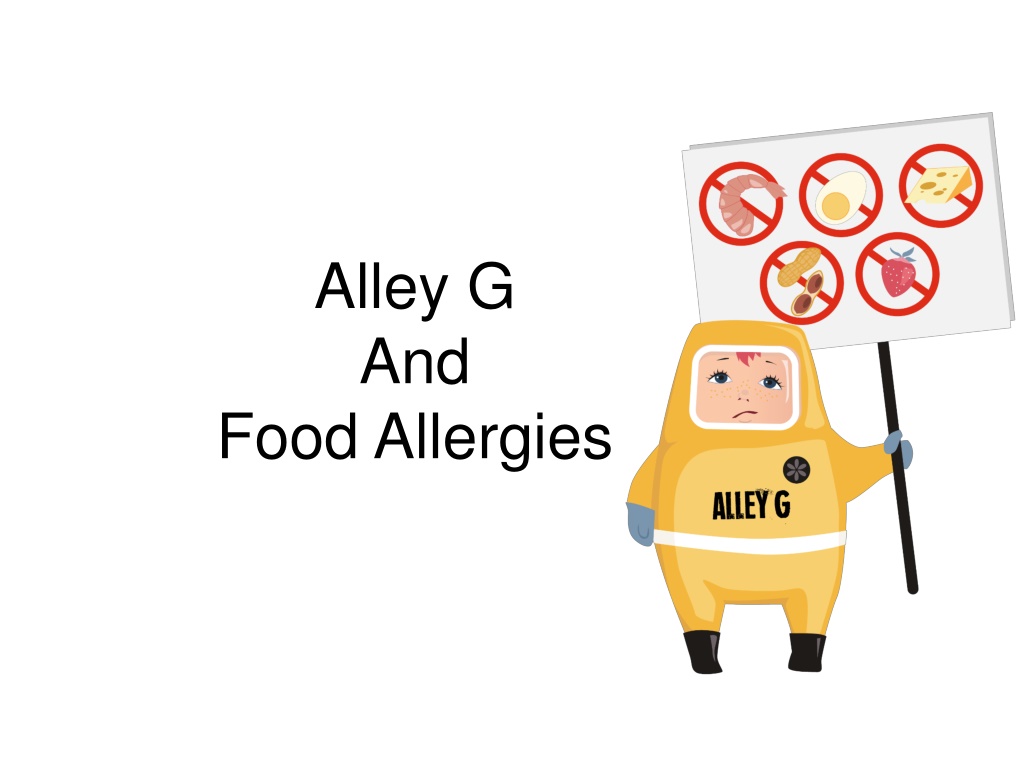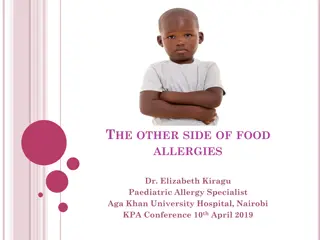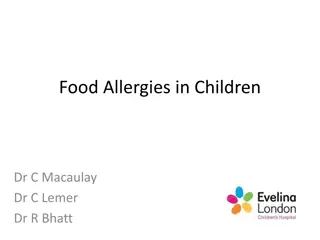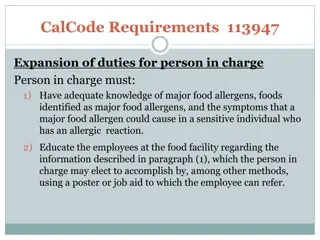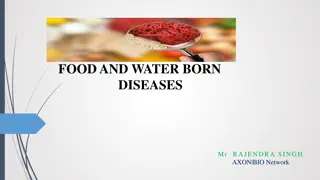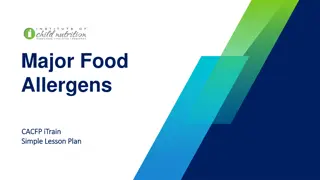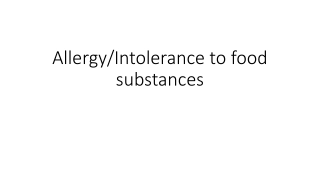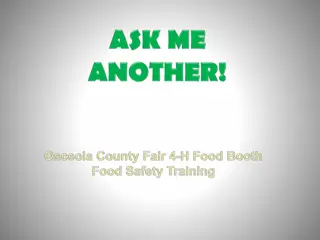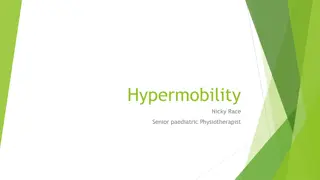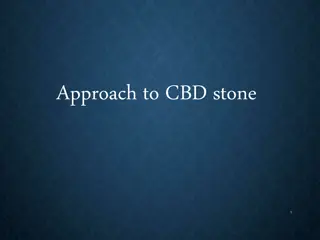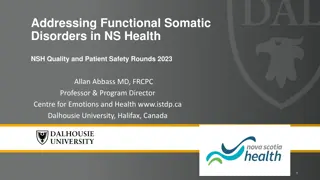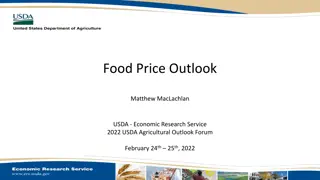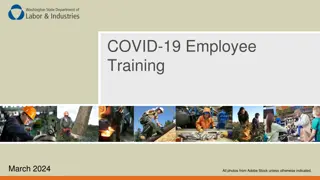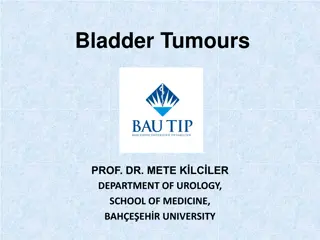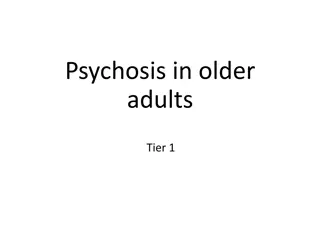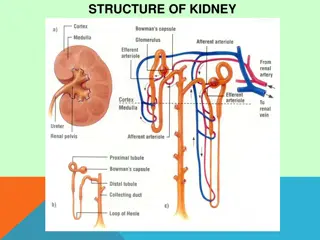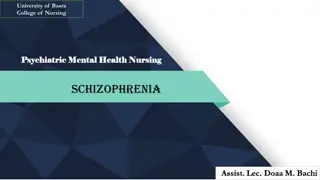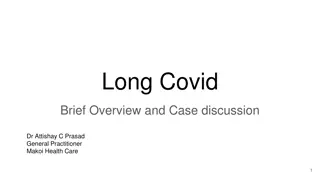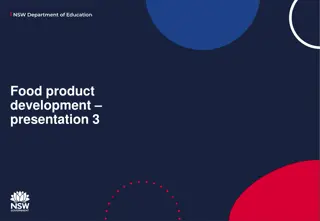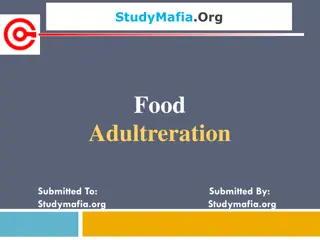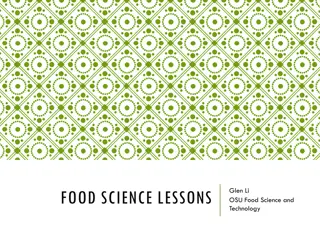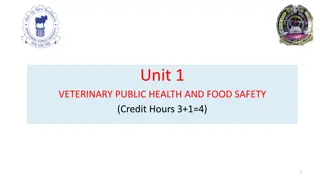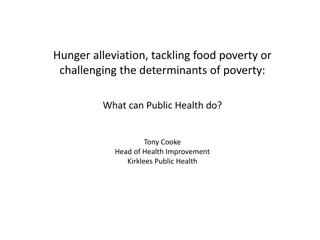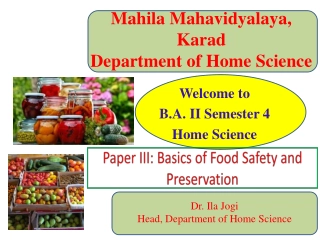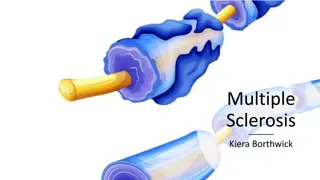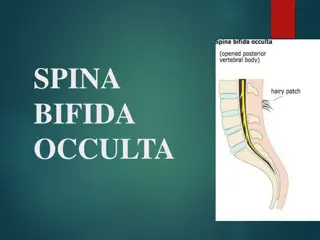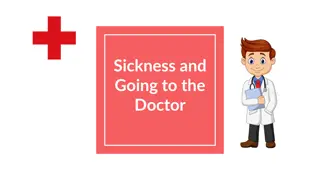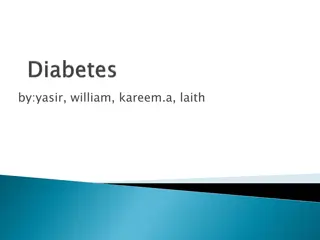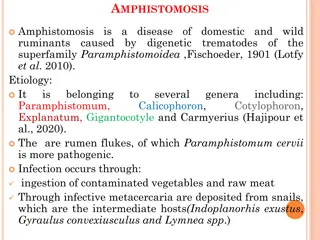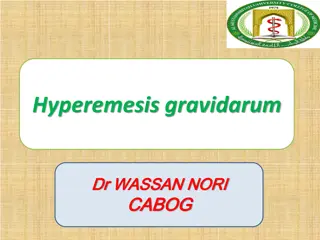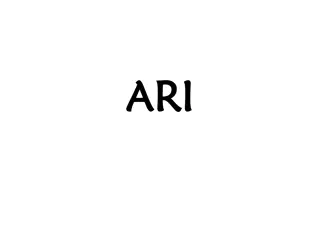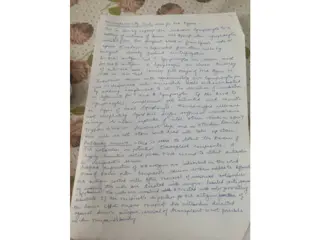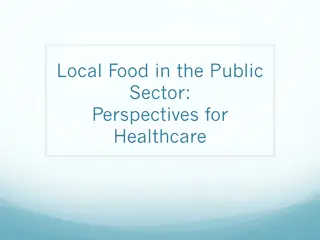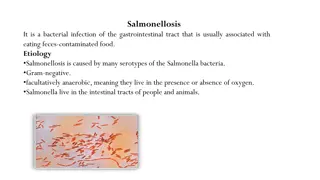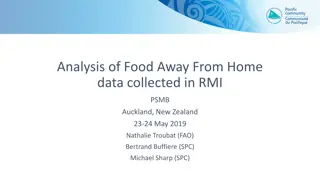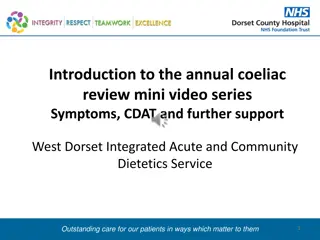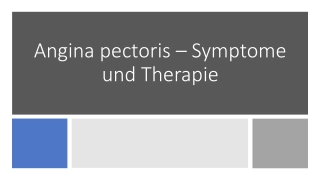Understanding Food Allergies and Common Symptoms
Explore the world of food allergies through an interactive icebreaker activity and learn about the most common food allergens. Understand the impact of food allergies on individuals, recognize symptoms of allergic reactions, and discover how to manage and prevent adverse effects from consuming allergenic foods.
Download Presentation

Please find below an Image/Link to download the presentation.
The content on the website is provided AS IS for your information and personal use only. It may not be sold, licensed, or shared on other websites without obtaining consent from the author. Download presentation by click this link. If you encounter any issues during the download, it is possible that the publisher has removed the file from their server.
E N D
Presentation Transcript
Alley G And Food Allergies
ICE BREAKER ACTIVITY Ask everyone in the class to introduce themselves as their favourite food instead of their first name for example; Hello I am Sticky Toffee pudding Pickering Hello I am Chocolate Fudge Cake Norris Now think about how you would feel if you could never eat that food again and if you did eat it, it would make you very sick.
Icebreaker Activity Why do you think people have different diets and eat different foods? Job e.g. Athlete Beliefs e.g. Vegetarians Religion Health e.g. Diabetes Have a food allergy
Does anyone know what a food allergy is ? A food allergy is when certain foods can hurt a person who is allergic to that food. Foods that you may eat every day can make other children very sick. Anyone with food allergies must never eat the foods that they are allergic to. They have to be very careful to stay away from those foods to stay healthy.
Most common food allergies There are 14 common food allergens Milk Egg Nuts Peanuts
Most common food allergies Cereals containing gluten Sesame Soya Fish Crustaceans
Most common food allergies Celery Lupin Mustard Molluscs Sulphites
Food allergy is when certain foods cause the body to react when they are eaten. If someone has a food allergy their immune system treats certain foods as if they are harmful invaders. Symptoms of allergic reaction include breathing problems, face or throat swelling, vomiting, upset stomach, fainting, skin rash, itchiness.
Symptoms of Allergic Reaction Respiratory System Skin My throat feels thick My mouth feels funny My tongue is itchy My skin is hot & itchy My mouth is burning Cardiovascular System Digestive System I m tired I want to throw up My stomach hurts My heart is beating fast
Symptoms of Allergic Reaction Allergic reactions can be mild or severe. Tell an adult immediately if you see a friend with any symptoms. A severe allergic reaction is called Anaphylaxis this needs to be treated quickly with emergency medicine usually an auto injector pen and a visit to hospital. Only people with food allergies will have a reaction to certain foods. If you don t have an allergy then food is completely safe for you to eat.
Food labels Allergens can be very good at hiding in food. People with food allergies always need to check every ingredient label to make sure food is safe for them to eat. Common allergens on ingredients labels are shown in bold.
FACT: PEANUTS ARE NOT NUTS! Peanuts are part of the legume family (peas, beans, lentils). That s why you might see nuts and peanuts listed on the same ingredient label. The following foods are also not nuts even though the word nut is in their name; coconut, nutmeg, chestnuts and butternut squash.
Can you imagine having a food allergy? People with food allergies must keep themselves safe and healthy by completely avoiding the allergen. How do you think that feels? How would you like to be treated if you had a food allergy?
Please watch I can t go to school today . Ben and Izzys story BBC Bitesize website
Be Kind to Friends with Food Allergies For children with food allergies, even a tiny amount of the food they are allergic to can make them very sick. Since food allergies affect lots of children it is important to learn how you can be a good friend. If someone with a food allergy eats something they are allergic to, they can get very sick and sometimes have to go to the hospital.
Be Kind to Friends with Food Allergies If a friend or classmate has a food allergy don t tease, bully or make fun of them. Tell an adult if you see other children picking on someone with a food allergy.
How to keep friends with food allergies safe Take allergy seriously. Don t share food with friends with food allergies. Learn the signs of an allergic reaction; swelling, wheezing, trouble breathing, itching, vomiting, rash. Always wash hands, before and after meals to prevent cross contamination. Always check the ingredients to see if a food is safe to eat. Alert an adult immediately if you or a friend is having an allergic reaction.
Please put the Allergy Safety Rules poster up in your classroom to help you remember #bekind #takeallergyseriously
